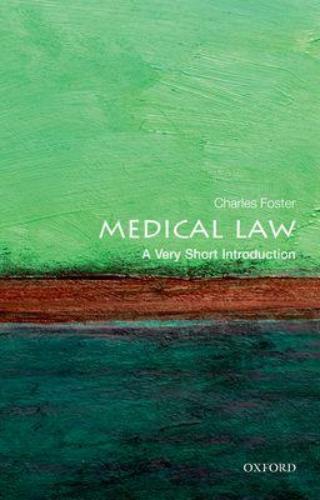Medical law is concerned with our bodies, and what happens to them during and after our lives. When things go wrong with our bodies, we want to know what our rights are, and what governs the conduct of the clinicians into whose hands we put our lives and limbs. Dealing with matters of life and
death, it can therefore have a fundamental impact on medical practice.
Headlines in the media often involve the core issues of medical law - organ transplantation, abortion, withdrawal of treatment, euthanasia, confidentiality, research on humans - these are topics that affect us all. Headlines can misrepresent, however. In order to fully understand the issues and
their relevance, we have to delve into the cases and into the principles behind them.
In this highly readable Very Short Introduction, Charles Foster explores different examples to illustrate the key problems and principles of medical law.
Table of Contents
Acknowledgements
1. Origins and legacies
2. The enforcement of medical law
3. Before birth
4. Confidentiality and privacy
5. Consent
6. Clinical negligence
7. Research on human subjects
8. Resource allocation
9. The end of life
10. Organ donation and the ownership of body parts
11. The future of medical law
References: Cases discussed
Further reading

